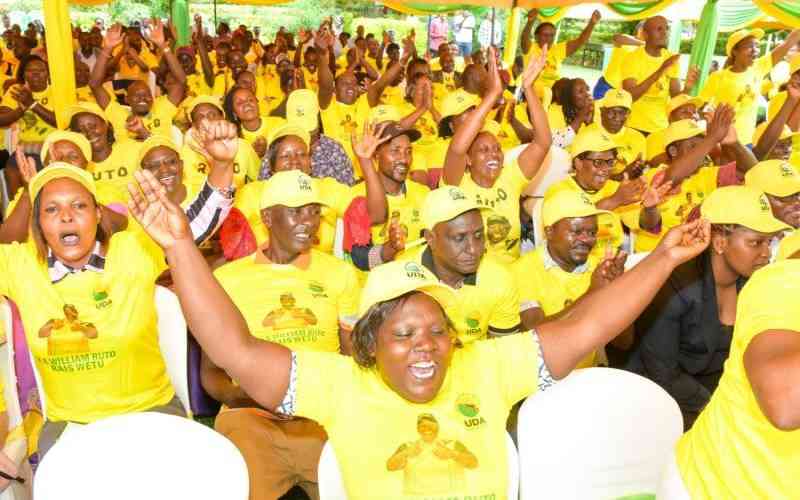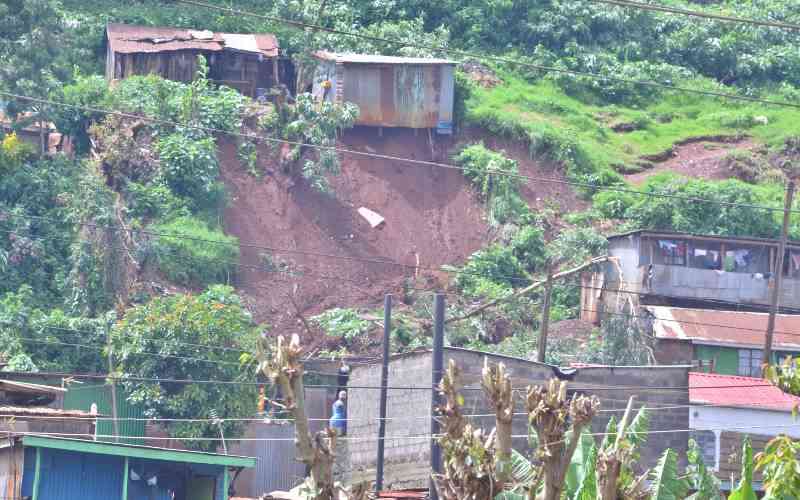Kenya: State officials are worried over spirited campaigns by CORD leader Raila Odinga to expose the use of billions of public funds under the secret vote in the Office of the President.
Defence and Interior principal secretaries told a parliamentary committee they were increasingly feeling uneasy following the current clamour for details of confidential expenditure to be made public.
The State officers who sit in the inscrutable National Security Council said such exposure was likely to make it difficult for the security agencies to keep Kenyans safe.
Mutea Iringo (Defence PS) and Monica Juma (Interior PS) told the Public Accounts Committee that the new threshold of transparency was posing “challenges” to handling security of the country. They also blamed the constitutional architecture, with the many independent commissions, for some of the push and pull among the authorities charged with keeping Kenyans safe.
“I will ask the committee to be alive to the nature of our politics, where we have come from, so that we do not endanger the country. There are things that we are doing which appear to be democratic, but that over-democratisation is posing a serious challenge to the security of this country,” Iringo told the opposition-led PAC.
Raila, the CORD leader, had put the figure at Sh15 billion; but the PSs said the amount was Sh2.4 billion.
According Esau Ndeda, an official at the Auditor General’s Office who went to the Office of the President to ascertain how the money was spent, it was difficult to ascertain if the money was spent prudently.
No opinion
“We don’t have an opinion. We could not examine details of those vouchers. It is the nature of the expenditure that the details are not disclosed. So we don’t have anything which can support this. In fact, we will say that it is unsupported,” said Ndeda.
Ndeda reminded the MPs, Iringo and Juma that the country had a new four-year-old Constitution that they needed to obey. “It is important for the committee members to take cognisance of the fact that the new Constitution has given the Auditor General specific mandate (to audit the use of public funds). It didn’t leave anything called confidential. The previous Constitution has such a provision and the State officers could say this is an amount whose expenditure cannot be made public. So the Auditor General could not audit fully,” said Ndeda.
The two spoke when they appeared before a House committee probing the use of money in the Office of the President.
But are Kenyans too free, too democratic as Iringo has suggested? The chairman of the committee, Ababu Namwamba (Budalang’i), put that question to Iringo. The PS held his ground and said “there were certain aspects of democracy” which were making his job difficult.
“Look for instance at the law that even gives terrorists a chance to take us to task. Recently, the Westgate attackers wanted to take the Commissioner of Prisons to court because they did not have sufficient freedom within the prison,” said Iringo.
It is that transparency that has rattled the top officials. Ms Juma, the Interior PS, said Kenya faced “critical operational challenges” as a result of the numerous freedoms enshrined in the Bill of Rights. She told MPs that they needed to be careful in the push to audit confidential spending, not only in the Ministry of Interior but also in the Department of Defence and in the National Intelligence Service.
Stay informed. Subscribe to our newsletter
Terror threats
“If you look across the world, any country that has terrorist threats and attacks, has responded to these attacks by closing the democratic space; we have opened and continue to open the democratic space. It is true, we have seen the appropriation even of the language and opportunities of expanded space to further terrorists and negative agenda,” said Juma. She told the PAC that the security threats were “real”.
Mutea’s and Juma’s views are that the country’s security agencies are still operating in the old dispensation where top secret spending has to be shielded from everyone else. The auditors understand the sensitivity, and they were asking that their boss, Auditor General Edward Ouko, also gets a peek into the spending.
“We thought that if we are given access to confidential expenditure, we can treat it the way we treated the one of NIS. NIS allowed us some access. When we went there for the audit meeting, the Auditor General and the Director General of NIS, just the two of them discussed, the results of the audit, and it was never published in the book,” said Ndeda, at the meeting attended by the Deputy Auditor General Alex Rugera.
However, Juma said, the current financial regulations prohibited audits of secret spending.
“There was no diversion from the reporting requirements for audit function in relation to this expenditure. The committee might decide and say that in the current dispensation, or in today’s Kenya more is required, but that is what is in existence now, and we have met that standard of proof,” the Interior PS said.
She added: “There’s nothing peculiar about the confidential vote... the public opinion is that there’s something wrong about the confidential vote. It is budgeted for, and processed like any other vote... there’s a whole system of decision-making.”
Too audit the spending, the current rules require certificates signed by the minister vowing that the money was used prudently. The committee will retreat to Mombasa to write a report on the public expenditure.
 The Standard Group Plc is a
multi-media organization with investments in media platforms spanning newspaper
print operations, television, radio broadcasting, digital and online services. The
Standard Group is recognized as a leading multi-media house in Kenya with a key
influence in matters of national and international interest.
The Standard Group Plc is a
multi-media organization with investments in media platforms spanning newspaper
print operations, television, radio broadcasting, digital and online services. The
Standard Group is recognized as a leading multi-media house in Kenya with a key
influence in matters of national and international interest.
 The Standard Group Plc is a
multi-media organization with investments in media platforms spanning newspaper
print operations, television, radio broadcasting, digital and online services. The
Standard Group is recognized as a leading multi-media house in Kenya with a key
influence in matters of national and international interest.
The Standard Group Plc is a
multi-media organization with investments in media platforms spanning newspaper
print operations, television, radio broadcasting, digital and online services. The
Standard Group is recognized as a leading multi-media house in Kenya with a key
influence in matters of national and international interest.







